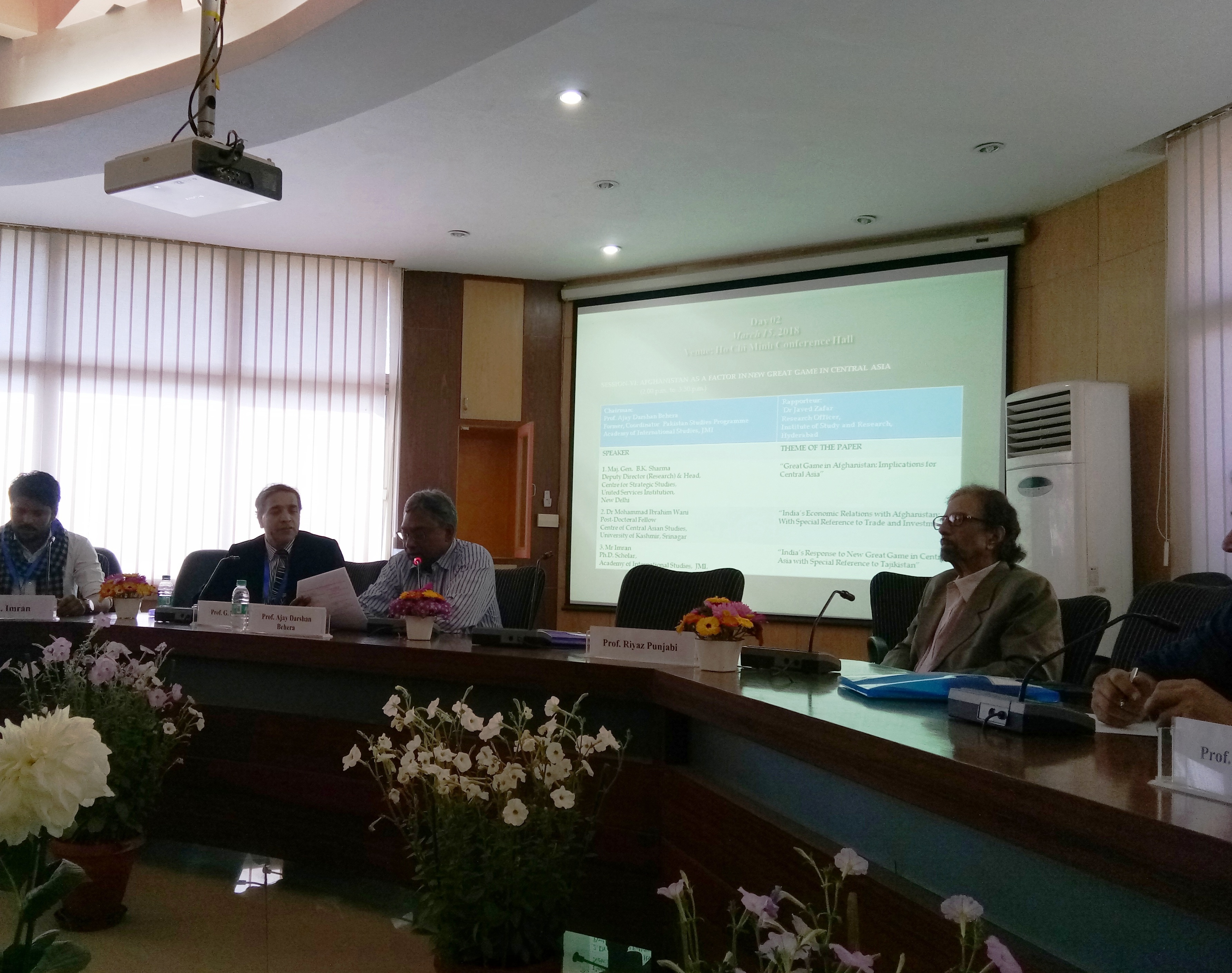By: Manzar Imam
New Delhi: The UGC Centre of Central Asian Studies of the Academy of International Studies (AIS), Jamia Millia Islamia organized a two-day national conference on “New Great Game in Central Asia: Dynamics, Dimensions and Implications” on March 14-15, 2018 here at JMI.
Academics from different universities and policy and research institutions including students presented researched papers and participated in the two-day long deliberations.
Speaking on this occasion Prof Ajay Darshan Behera of AIS observed that the New Great Game in the post-Cold War period had affected India in the deterioration of security issues. He said that the Great Game was largely among States and Empires whereas in the New Great Game the number of actors has increased and it includes non-state actors, Multi-National Corporations, etc.
Against the backdrop of politics and relations between countries of South Asia, Central Asia and West Asia, Behera remarked that the geopolitics in the region cannot be understood without the role Pakistan is playing in Afghanistan.
Prof Behera’s remark came following a paper by Dr Mohammad Ibrahim Wani, a Post-Doctoral Fellow at the University of Kashmir, on India’s Economic Relations with Afghanistan with specific reference to trade and investment.
Although Dr Wani’s paper looked at possibilities of improvement of Indo-Afghan relations, his whole thrust was on economic relations whereas Dr Behera and other participants maintained that geopolitics was the central issue of Afghanistan because countries look for economic change in Afghanistan but economic models do not help to solve the problem.
In her valedictory address Prof Mansura Haidar, former Head, Department of History, Aligarh Muslim University said that the New Great Game was being played by the same powers with changing partners and that only the stage had changed with the disintegration of the Soviet Union. She spoke about different phases of the larger politics in the region. The third phase began with Qatar in 2009. For Mansura, one of the leading Central Asian experts of India, the most important player in the competitive New Great Game was China.

Earlier in his introduction to the theme of the conference Prof G.M. Shah, the programme coordinator, said the conference is “an effort to develop a comprehensive understanding of the post-independence national transformations and international permutations and combinations in Central Asia”, with a special focus on the implications of this power play for Central Asia and its immediate and extended neighbourhood especially in Iran, Afghanistan, Pakistan and India.
The contentious issues of OBOR and CPEC were discussed during Q & A sessions with students raising a lot of questions on the role of China. Research Associate and scholars Dr Kamala Kumari, Martand Jha, Anjali Sehrawat of Jawaharlal Nehru University and Dr Tarique Anwar and Imran of JMI presented their papers.
Prof Rashmi Doraiswamy, Officiating Director, AIS gave her introductory remarks at the valedictory session chaired by Prof R. G. Gidadhubli. Earlier on 14 March, Prof Doraiswamy also delivered the welcome address.
Prof Mohammad Badrul Alam, Prof Mohammad Ishtiaque, Prof Sanjay Panday, Prof. Ajay Darshan Behera, Prof. Shri Prakash, Prof Sanjay Deshpande presided over the proceedings of seven different sessions that looked at different aspects of the issue.
(The author is a Ph.D. Fellow at the Academy of International Studies, Jamia Millia Islamia, New Delhi and is also doing an online program “Contending Modernities” of the University of Notre Dame, USA)
